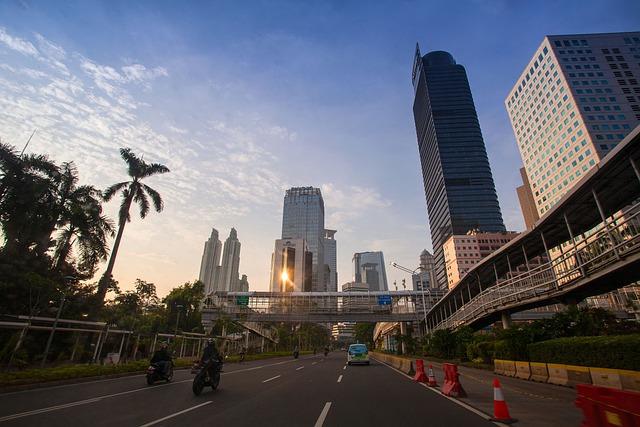The Rise of Nomadism: Embracing a Borderless Lifestyle
In the ever-evolving landscape of modern life, a profound shift is occurring – a departure from traditional notions of rooted existence towards a lifestyle characterized by mobility, adaptability, and a deliberate lack of geographical ties.
This phenomenon, commonly referred to as the rise of nomadism, marks a radical departure from the sedentary lifestyles that have dominated human history.
Embracing a borderless lifestyle, nomads are rewriting the script on what it means to live in an interconnected world.
Nomadism, once associated primarily with ancient tribes and pastoral communities, has found a resurgence in the 21st century.
The reasons behind this shift are complex, ranging from technological advancements to societal changes and a reevaluation of priorities.
The rise of digital nomadism, in particular, has become a prominent manifestation of this trend, with individuals leveraging technology to liberate themselves from the constraints of a fixed location.
Digital age
One of the driving forces behind the embrace of a nomadic lifestyle is the unprecedented connectivity offered by the digital age.
The advent of high-speed internet, coupled with the ubiquity of smartphones and laptops, has untethered individuals from traditional workspaces.
This liberation has paved the way for a new breed of workers who can perform their tasks from virtually anywhere on the globe.
Remote work has become more than just a job perk; it has become a catalyst for a borderless existence.
Digital nomads, armed with their laptops and a sense of adventure, traverse the world while maintaining their professional pursuits.
The concept of a fixed office space has been replaced by co-working spaces, coffee shops, and even beachside lounges.
This shift challenges the conventional understanding of work-life balance, as the boundaries between the two blur in a nomadic lifestyle.
Work can seamlessly integrate with exploration, fostering a more holistic approach to life.
A cultural shift
Beyond the professional realm, the rise of nomadism reflects a broader cultural shift.
Traditional notions of stability and permanence are being reconsidered in favor of flexibility and experiential living.
The desire for a borderless lifestyle is driven by a thirst for diverse experiences, cultural immersion, and a rejection of the monotony that can accompany a settled life.
Nomads are drawn to the idea that the world is their home, with each destination offering a unique chapter in their life’s journey.
This borderless lifestyle is not just limited to remote workers. A growing number of individuals are adopting nomadic principles in their personal lives, rejecting the idea of a fixed home and opting for a more fluid existence.
Minimalism, a philosophy that advocates for a simplified and intentional life, often aligns seamlessly with nomadic principles.
The emphasis shifts from accumulating possessions to collecting experiences, with the world serving as the ultimate playground.
Moreover, the rise of nomadism challenges the traditional concept of nationalism and the borders that define nation-states.
Nomads, by their very nature, operate outside the confines of a single geographical entity. Their allegiance lies not to a particular piece of land but to the global community.
This borderless perspective fosters a sense of interconnectedness and shared humanity, transcending the divisions that often define the geopolitical landscape.
Challenges
However, the nomadic lifestyle is not without its challenges.
While technology has facilitated remote work, issues such as visa restrictions, tax implications, and legal considerations can complicate the nomadic journey.
Navigating these challenges requires a level of adaptability and resourcefulness that defines the nomadic spirit.
The very essence of a borderless lifestyle implies a constant negotiation with the systems and structures that seek to anchor individuals to a specific location.
Yet, for many nomads, the rewards far outweigh the challenges.
The freedom to choose one’s surroundings, the ability to connect with diverse cultures, and the constant stimulation of new environments contribute to a sense of fulfillment that transcends the conventional markers of success.
The nomadic lifestyle becomes a means of self-discovery, a journey that continually shapes and reshapes one’s identity.
Conclusion
In embracing a borderless lifestyle, nomads are also contributing to the evolution of communities around the world.
As they move from place to place, they bring with them not only their skills and perspectives but also a willingness to engage with and contribute to local cultures.
This cultural exchange enriches both the nomad and the communities they encounter, fostering a sense of global interconnectedness.
The rise of nomadism challenges societal norms and prompts a reevaluation of what constitutes a fulfilling life.
It invites individuals to break free from the conventional trajectory of education, career, and settling down, encouraging a more dynamic and personalized approach to living.
The nomadic lifestyle embodies the essence of freedom – freedom from physical and societal constraints, freedom to explore, and freedom to shape one’s own narrative.
As the world becomes increasingly interconnected, the rise of nomadism serves as a testament to humanity’s inherent desire for exploration and the pursuit of meaningful experiences.
It invites us to question the boundaries that confine us and consider a life less ordinary, where the journey itself becomes the destination.
In embracing a borderless lifestyle, nomads are not just traversing geographical landscapes; they are navigating the boundless possibilities of a life without borders.



